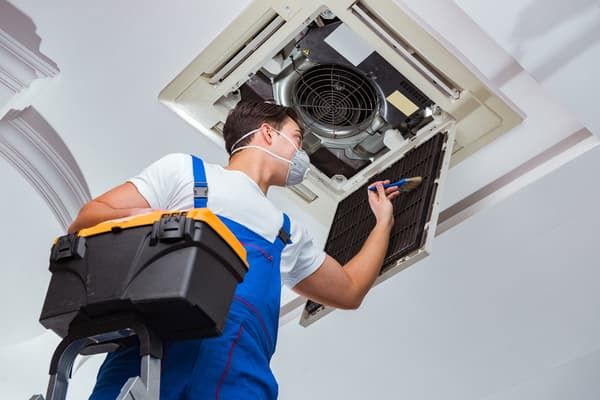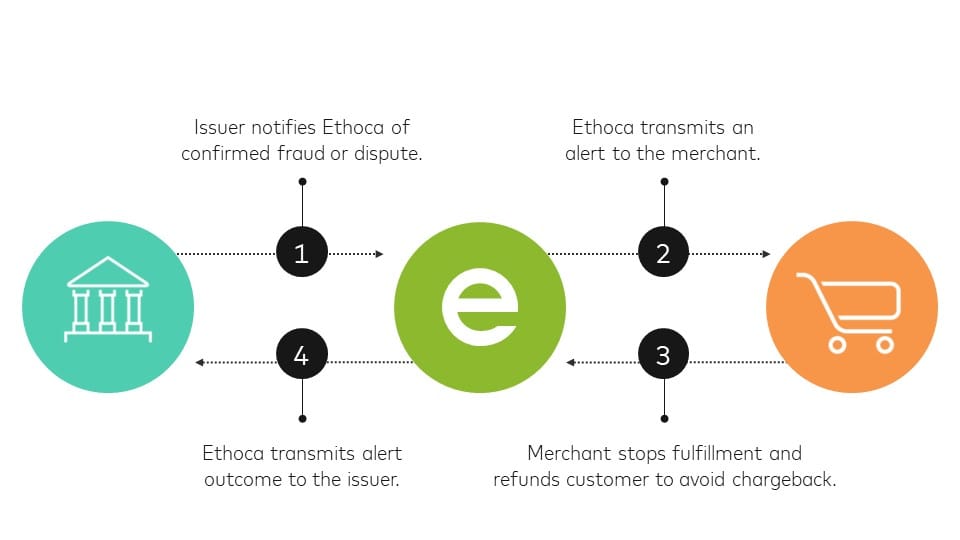
SuperPay helps air conditioning services professionals like yourself get paid as quickly as possible. Choose our platform to power your payments & billing.
Are you interested in pursuing a career as an AC technician? With the increasing demand for HVAC systems in residential and commercial buildings, the need for skilled professionals in this field is on the rise. But how do you get started on this career path? The answer lies in enrolling in a comprehensive AC technician training program.
In this blog post, we will explore the different types of training programs available for aspiring AC technicians. Whether you are a beginner looking to gain basic knowledge or an experienced technician seeking to enhance your skills, there is a program out there that suits your needs.
We will begin by understanding the basics of what an AC technician does and the importance of their role in maintaining and repairing air conditioning systems. From there, we will delve into the various types of training programs available, including certificate programs, associate degree programs, apprenticeships, and online training programs.
Next, we will discuss what to expect in an AC technician training program. This includes an overview of the coursework and curriculum, as well as the hands-on training opportunities that will allow you to apply your knowledge in real-world scenarios. We will also touch on the importance of certification preparation and how it can enhance your career prospects.
Speaking of career prospects, we will explore the different job roles and responsibilities that AC technicians can expect to encounter. From installation and maintenance to troubleshooting and repair, there are a variety of opportunities available in this field. We will also highlight potential employers and discuss the potential for career advancement.
Finally, we will provide some tips on how to choose the right AC technician training program for you. This includes considering factors such as accreditation, cost, location and schedule flexibility, as well as the reputation and success of alumni from the program.
Whether you are just starting out or looking to take your career to the next level, investing in a quality AC technician training program is a crucial step towards success. So, stay tuned for our upcoming blog posts as we explore each aspect of these training programs in more detail.
Understanding the Basics: What is an AC Technician?
An AC technician, also known as an air conditioning technician, is a skilled professional who specializes in the installation, maintenance, and repair of air conditioning systems. These systems are designed to control and regulate the temperature, humidity, and air quality within residential, commercial, and industrial buildings.
The role of an AC technician is vital in ensuring that air conditioning systems operate efficiently and effectively. They are responsible for inspecting, diagnosing, and troubleshooting issues in the system, as well as performing regular maintenance to prevent breakdowns and optimize performance.
AC technicians possess a deep understanding of the components and mechanisms of air conditioning systems. They are knowledgeable about electrical systems, refrigeration principles, ventilation, and ductwork. They are also proficient in reading blueprints and technical manuals, as well as using specialized tools and equipment for installation and repairs.
In addition to technical skills, AC technicians must have excellent problem-solving and communication skills. They often interact with clients to understand their cooling needs and provide recommendations for suitable systems. They must also be able to explain complex technical concepts to clients in a clear and concise manner.
AC technicians work in a variety of settings, including residential homes, office buildings, hospitals, schools, and manufacturing plants. They may be employed by HVAC companies, maintenance departments, or work as independent contractors. Depending on the size and complexity of the project, they may work individually or as part of a team.
The demand for AC technicians is expected to grow in the coming years, driven by the continuous need for climate control in various industries. With advances in technology, AC systems are becoming more complex, requiring skilled technicians to install, maintain, and repair them.
Now that we have a basic understanding of what an AC technician does, let's explore the different types of training programs available to aspiring technicians in more detail.
Types of Training Programs for AC Technicians
There are several types of training programs available for individuals interested in becoming AC technicians. These programs vary in duration, depth of study, and delivery methods. Let's explore the different types of training programs in detail:
Certificate Programs
Certificate programs are short-term training programs that focus on providing the essential knowledge and skills required to start a career as an AC technician. These programs are typically offered by vocational schools, community colleges, and trade schools. Certificate programs can range from a few weeks to several months, depending on the curriculum and intensity of the program.
Certificate programs cover the fundamentals of air conditioning systems, including electrical systems, refrigeration principles, HVAC controls, and troubleshooting techniques. Students learn through a combination of classroom instruction and hands-on training in lab settings. Upon completion of the program, students receive a certificate that signifies their proficiency in AC technician skills.
Certificate programs are ideal for individuals who want to quickly enter the workforce and start gaining practical experience. They provide a solid foundation in AC technology and prepare students for entry-level positions as AC technicians or HVAC installers.
Associate Degree Programs
Associate degree programs offer a more comprehensive and in-depth study of air conditioning technology. These programs are typically offered by community colleges and technical institutes and take about two years to complete. Associate degree programs provide a well-rounded education that includes both theoretical knowledge and practical skills.
In addition to covering the core concepts of air conditioning systems, associate degree programs often include coursework in mathematics, physics, and communication skills. Students also gain hands-on experience through lab work and internships, allowing them to apply their knowledge in real-world settings.
Upon completion of an associate degree program, students earn an Associate of Applied Science (AAS) degree. This degree not only demonstrates a higher level of expertise but also opens up opportunities for career advancement and specialization within the field of HVAC.
Apprenticeships
Apprenticeships offer a unique combination of on-the-job training and classroom instruction. This type of training program allows individuals to learn directly from experienced AC technicians while earning a wage. Apprenticeships typically last between three to five years, during which apprentices work under the guidance of a skilled mentor.
During the apprenticeship, individuals gradually acquire the skills and knowledge required to become a competent AC technician. They learn about system installation, maintenance, repair, and customer service. Classroom instruction is often provided through trade schools or community colleges, where apprentices attend evening or weekend classes.
Apprenticeships are highly regarded in the HVAC industry as they provide a well-rounded education and extensive hands-on experience. Upon completion, apprentices are typically awarded a journeyman's license, which signifies their competency in the field and allows them to work independently.
Online Training Programs
For individuals who prefer flexibility and self-paced learning, online training programs offer a convenient option. Online programs provide the flexibility to study from anywhere and at any time, making them suitable for individuals with busy schedules or those who cannot attend traditional in-person classes.
Online training programs typically consist of video lectures, interactive modules, and virtual simulations. Students have access to digital resources and can connect with instructors and fellow students through online platforms. While online programs may lack hands-on training, some programs offer practical assignments that students can complete at home.
These programs vary in duration and curriculum, ranging from short courses to comprehensive programs that cover all aspects of AC technology. Online training programs can be a valuable option for individuals seeking to gain foundational knowledge and skills at their own pace.
Now that we have explored the different types of training programs available for AC technicians, let's move on to the next section where we discuss what to expect in an AC technician training program.

What to Expect in an AC Technician Training Program
When enrolling in an AC technician training program, it's important to have a clear understanding of what to expect. These programs are designed to provide you with the knowledge, skills, and practical experience necessary to succeed in the field of air conditioning technology. Let's explore what you can expect in an AC technician training program:
Coursework and Curriculum
AC technician training programs cover a range of topics to ensure a comprehensive understanding of air conditioning systems. You can expect to learn about electrical systems, refrigeration principles, HVAC controls, system components, ductwork, and ventilation. The coursework typically includes both theoretical and practical aspects, allowing you to gain a strong foundation in AC technology.
You may also study topics such as thermodynamics, heat transfer, energy efficiency, and environmental regulations. These subjects are essential for understanding the principles behind air conditioning systems and their impact on energy consumption and environmental sustainability.
Hands-On Training
In addition to classroom instruction, hands-on training is a crucial component of AC technician programs. You can expect to work with actual AC systems, tools, and equipment in a lab or workshop setting. This hands-on experience allows you to apply the theoretical knowledge you have gained and develop practical skills in system installation, maintenance, and troubleshooting.
Through hands-on training, you will learn how to handle refrigerants, perform system diagnostics, conduct routine maintenance, and make necessary repairs. This practical experience is invaluable for developing the confidence and proficiency required to work in the field as an AC technician.
Certification Preparation
Many AC technician training programs prepare students for industry-recognized certifications. These certifications validate your knowledge and skills, making you more competitive in the job market. Common certifications include the North American Technician Excellence (NATE) certification and the Environmental Protection Agency (EPA) certification.
The training program will often include specific preparation for these certifications, such as review sessions and practice exams. This ensures that you are well-prepared to pass the certification exams and demonstrate your competence as an AC technician.
Industry Connections and Networking
AC technician training programs often provide opportunities for networking and building connections within the industry. Guest lectures by industry professionals, career fairs, and industry events may be organized to facilitate interaction between students and potential employers.
These networking opportunities can be valuable for securing internships, apprenticeships, or job placements upon completion of the training program. Building a strong professional network can also provide ongoing support and mentorship throughout your career as an AC technician.
By understanding what to expect in an AC technician training program, you can make an informed decision and choose a program that aligns with your goals and aspirations. In the next section, we will explore the career prospects and opportunities available for AC technicians.
Career Prospects and Opportunities for AC Technicians
As an AC technician, you can expect a promising career with various opportunities for growth and advancement. The demand for skilled technicians who can install, maintain, and repair air conditioning systems continues to rise. Let's explore the career prospects and opportunities available for AC technicians:
Job Roles and Responsibilities
AC technicians can take on a range of job roles and responsibilities within the HVAC industry. Some common job titles include:
HVAC Technician: In this role, you will be responsible for installing, maintaining, and repairing heating, ventilation, and air conditioning systems in residential, commercial, and industrial settings. You may also be involved in troubleshooting system issues and providing recommendations for system improvements.
Service Technician: As a service technician, your primary focus will be on diagnosing and repairing air conditioning systems. You will respond to service calls, conduct inspections, and perform necessary repairs to ensure optimal system performance.
Maintenance Technician: Maintenance technicians are responsible for conducting routine maintenance on AC systems, including cleaning, lubrication, and filter replacement. They may also perform system inspections to identify potential issues and recommend necessary repairs.
Installation Technician: If you enjoy working on new construction projects, you may pursue a career as an installation technician. In this role, you will be responsible for installing new air conditioning systems in residential or commercial buildings, ensuring they are properly connected and functioning.
Potential Employers
AC technicians can find employment opportunities in a variety of settings, including:
HVAC Companies: Many AC technicians are employed by HVAC companies that specialize in the design, installation, and maintenance of air conditioning systems. These companies often serve both residential and commercial clients.
Facilities Maintenance Departments: Large organizations such as hospitals, schools, universities, and government facilities often have their own maintenance departments that employ AC technicians to ensure the proper functioning of their air conditioning systems.
Building Contractors: Building contractors may hire AC technicians to install air conditioning systems in new construction projects. They may also require technicians to provide ongoing maintenance and repair services.
Self-Employment: Some AC technicians choose to work as independent contractors, offering their services directly to clients. This allows for flexibility and the opportunity to build your own business.
Career Advancement Opportunities
As you gain experience and expertise in the field, there are several avenues for career advancement as an AC technician. Some possibilities include:
Lead Technician or Supervisor: With experience and demonstrated leadership skills, you may have the opportunity to become a lead technician or supervisor, overseeing a team of technicians and managing projects.
Specialization: As you gain knowledge and experience, you can choose to specialize in specific areas of AC technology, such as commercial systems, industrial HVAC, or energy-efficient systems. Specialization can open up new career opportunities and potentially higher earning potential.
Sales and Technical Support: With a strong understanding of air conditioning systems, you may explore roles in sales or technical support for HVAC manufacturers or distributors. This allows you to use your expertise to assist customers in selecting the right systems or troubleshooting technical issues.
Business Ownership: Some AC technicians with entrepreneurial aspirations may choose to start their own HVAC business. This path offers the opportunity to build a successful enterprise and have full control over the services provided.
The career prospects for AC technicians are promising, with a steady demand for their expertise. By choosing the right training program and gaining practical experience, you can embark on a rewarding career in the HVAC industry. In the next section, we will discuss how to choose the right AC technician training program for you.
Choosing the Right AC Technician Training Program
Choosing the right AC technician training program is crucial to ensure that you receive high-quality education and the necessary skills to succeed in your career. With numerous options available, it's essential to consider various factors when making your decision. Here are some key considerations to help you choose the right AC technician training program:
Accreditation
One of the most important factors to consider is the accreditation of the training program. Accreditation ensures that the program meets certain quality standards and is recognized by industry organizations and employers. Look for programs that are accredited by reputable accrediting bodies in the field of HVAC, such as HVAC Excellence or the Partnership for Air Conditioning, Heating, Refrigeration Accreditation (PAHRA).
Cost of the Program
Consider the cost of the training program, including tuition fees, textbooks, and any additional expenses. Compare the costs of different programs and evaluate the value you will receive in terms of the curriculum, hands-on training opportunities, and industry connections. Additionally, explore any financial aid or scholarship options that may be available to help offset the cost.
Location and Schedule Flexibility
Consider the location of the training program and whether it is convenient for you to commute or relocate if necessary. Also, evaluate the program's schedule and determine if it aligns with your availability. Some programs offer flexible scheduling options, such as evening or weekend classes, which can be beneficial if you are currently working or have other commitments.
Reputation and Alumni Success
Research the reputation of the training program and the success of its alumni. Look for reviews, testimonials, or success stories from previous students. This will give you an idea of the program's quality and the opportunities it can provide for your future career. Additionally, consider reaching out to alumni or industry professionals to gather insights and feedback about the program.
Additional Resources and Support
Find out what additional resources and support the training program offers. This may include access to industry-standard equipment and facilities, career services, job placement assistance, or opportunities for internships or apprenticeships. These resources can greatly enhance your learning experience and help you transition into the workforce smoothly.
By carefully considering these factors, you can make an informed decision and choose the AC technician training program that best suits your needs, goals, and circumstances. Remember to take your time, research thoroughly, and seek advice from professionals in the field.
With the right training program, you will gain the knowledge, skills, and certification necessary to excel as an AC technician and embark on a successful and fulfilling career in the HVAC industry.


